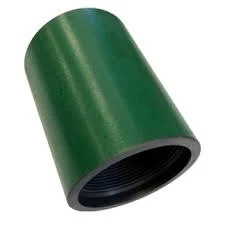- Afrikaans
- Albanian
- Amharic
- Arabic
- Armenian
- Azerbaijani
- Basque
- Belarusian
- Bengali
- Bosnian
- Bulgarian
- Catalan
- Cebuano
- Corsican
- Croatian
- Czech
- Danish
- Dutch
- English
- Esperanto
- Estonian
- Finnish
- French
- Frisian
- Galician
- Georgian
- German
- Greek
- Gujarati
- Haitian Creole
- hausa
- hawaiian
- Hebrew
- Hindi
- Miao
- Hungarian
- Icelandic
- igbo
- Indonesian
- irish
- Italian
- Japanese
- Javanese
- Kannada
- kazakh
- Khmer
- Rwandese
- Korean
- Kurdish
- Kyrgyz
- Lao
- Latin
- Latvian
- Lithuanian
- Luxembourgish
- Macedonian
- Malgashi
- Malay
- Malayalam
- Maltese
- Maori
- Marathi
- Mongolian
- Myanmar
- Nepali
- Norwegian
- Norwegian
- Occitan
- Pashto
- Persian
- Polish
- Portuguese
- Punjabi
- Romanian
- Russian
- Samoan
- Scottish Gaelic
- Serbian
- Sesotho
- Shona
- Sindhi
- Sinhala
- Slovak
- Slovenian
- Somali
- Spanish
- Sundanese
- Swahili
- Swedish
- Tagalog
- Tajik
- Tamil
- Tatar
- Telugu
- Thai
- Turkish
- Turkmen
- Ukrainian
- Urdu
- Uighur
- Uzbek
- Vietnamese
- Welsh
- Bantu
- Yiddish
- Yoruba
- Zulu
teflon coupling
Understanding Teflon Couplings Advantages and Applications
Teflon couplings are specialized mechanical components used in various industries for their unique properties and performance characteristics. Teflon, or polytetrafluoroethylene (PTFE), is renowned for its excellent chemical resistance, low friction, and high-temperature tolerance, making it an ideal material for specific coupling applications. This article aims to delve into the intricacies of Teflon couplings, exploring their advantages, applications, and overall importance in industrial settings.
What are Teflon Couplings?
Teflon couplings are essentially flexible connectors that are used to join two shafts together in machinery and equipment. Unlike traditional metal couplings, Teflon couplings are designed to accommodate misalignments and vibrational movements while providing minimal friction. These characteristics make them suitable for high-performance applications where precision and reliability are critical.
Advantages of Teflon Couplings
1. Chemical Resistance One of the standout features of Teflon is its exceptional resistance to a wide range of chemicals and solvents. This property ensures that Teflon couplings can operate in harsh environments without deteriorating or losing their mechanical properties, making them ideal for the chemical and pharmaceutical industries.
2. Low Friction Teflon has a very low coefficient of friction, which translates to reduced wear and tear on both the coupling and the connected components. This low friction feature enables smoother operation, less energy loss, and higher efficiency, which is crucial in applications where energy consumption is a concern.
3. Temperature Stability Teflon can maintain its structural integrity across a wide temperature range, from sub-zero temperatures to over 260°C (500°F). This thermal stability is essential for applications exposed to varying temperature conditions, ensuring that the coupling remains functional without deformation or degradation.
4. Electrical Insulation Teflon is an excellent insulator, making Teflon couplings suitable for electrical applications. They can prevent unwanted electrical conductivity, which is particularly important in sensitive electronic devices or in environments where static electricity is a concern.
5. Ease of Installation and Maintenance Teflon couplings are generally lightweight and easy to install, which reduces the complexity of maintenance. They often require less frequent servicing compared to metal couplings due to their durability and resistance to wear.
teflon coupling

Applications of Teflon Couplings
Teflon couplings are utilized across a myriad of industries, including
- Chemical Processing In chemical processing plants, Teflon couplings are used to connect pumps, mixers, and other critical machinery that handles corrosive substances.
- Pharmaceutical Manufacturing In the pharmaceutical industry, cleanliness and contamination prevention are paramount. Teflon couplings help maintain the hygiene of the manufacturing process by offering a non-contaminating barrier.
- Food and Beverage Industry Similar to pharmaceuticals, the food industry values Teflon couplings for their ability to resist the corrosive nature of various food products and cleaning substances.
- Aerospace and Automotive In aerospace and automotive applications, where weight is a crucial factor, Teflon couplings provide a lightweight yet strong alternative to traditional coupling materials.
- Oil and Gas Teflon couplings are crucial in the oil and gas sector, where they are used in harsh environments that involve chemicals and extreme temperatures.
Conclusion
In conclusion, Teflon couplings represent a versatile solution for many industries requiring durable and reliable mechanical connections. Their unique properties, such as chemical resistance, low friction, and temperature stability, contribute to their growing adoption in various applications. As technology continues to evolve, the demand for specialized components like Teflon couplings will increase, paving the way for advancements that enhance efficiency and reliability across critical industries. Whether in processing plants, laboratories, or manufacturing facilities, Teflon couplings play an integral role in modern engineering and technology.
-
Tubing Pup Joints: Essential Components for Oil and Gas OperationsNewsJul.10,2025
-
Pup Joints: Essential Components for Reliable Drilling OperationsNewsJul.10,2025
-
Pipe Couplings: Connecting Your World EfficientlyNewsJul.10,2025
-
Mastering Oilfield Operations with Quality Tubing and CasingNewsJul.10,2025
-
High-Quality Casing Couplings for Every NeedNewsJul.10,2025
-
Boost Your Drilling Efficiency with Premium Crossover Tools & Seating NipplesNewsJul.10,2025







